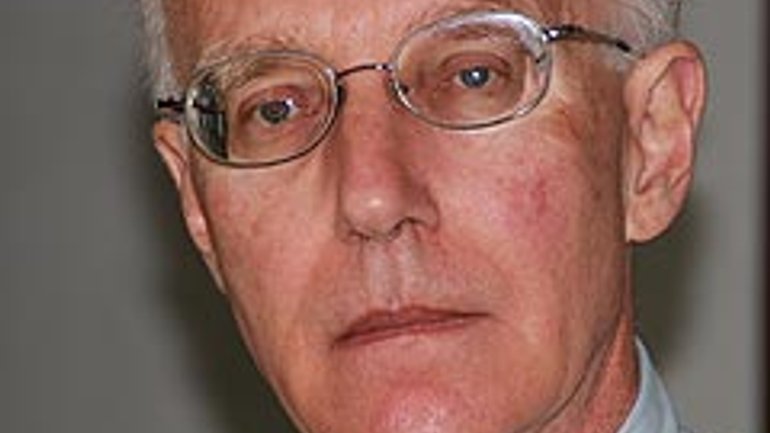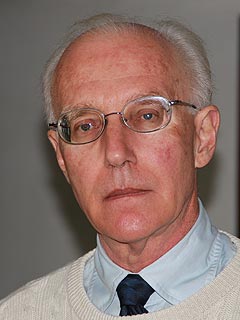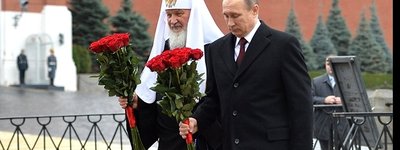Is it Possible to Cooperate with Russians?

 If religion combines naturally with nationalism, can there be any basis for trans-national religious solidarity?
If religion combines naturally with nationalism, can there be any basis for trans-national religious solidarity?
In a recent article in the London Review of Books, Slovenian political philosopher Slavoj Zizek called for the solidarity of Ukrainians and Russians in defense of “emancipatory” values like freedom, democracy, and equality in the face of oligarchic capitalism combined with nationalism(“Barbarism with a Human Face,” Vol. 36 No. 9, 8 May 2014). With the electoral victory of a Ukrainian oligarch as President on May 25, Zizek’s appeal has continuing relevance.
Naturally, in the wake of the Russian annexation of the Crimea and its sporadic war on the rest of Ukraine,cooperation with Russians is a hard sell. Public opinion as reflected in popular culture – for example, Anastasia Dmytruk’s song “We Can Never be Brothers,” which has circulated on YouTube – rejects any possibility of Ukrainian cooperation with Russians. But a more nuanced view would acknowledge that Russians and Ukrainians still have common interests. This is not merely a leftist obsession with an “international proletariat.” It is a perception that democracy is under threat everywhere, and that nationalisms all too easily conspire to crush it. It is a call for neighboring peoples to work together to resist their oligarchs, who may tactically support nationalism but who also have common economic interests detrimental to the overwhelming majority of their populations.
Can one apply such a principle to religious issues? If religion combines naturally with nationalism, can there be any basis for trans-national religious solidarity, especially where it would cross confessional lines?
In fact, such solidarity has existed before. In the Soviet period, prisoners of conscience of various creeds and nationalities helped each other to survive in the GULAG. An “ecumenism of suffering” developed among Orthodox, Catholics, and Protestants.Inter-religious solidarity united Christians with persecuted Muslims and Jews. Russian Orthodox dissident Fr. Gleb Yakunin supported the rights of Ukrainians.
Today, cooperation between Ukrainian and Russian Orthodox as well as Catholics and members of other confessions and religions could serve five broad purposes. First, it would help them resist the materialism that has corrupted society in both countries. Second, it would create a common front against the Western consumerism and commercialization of life that would accompany these countries’ integration with the international economy. Third, it could help believers in both countries forge links with like-minded believers in Europe and beyond. Only such an transnational front of Christians and other religious believers would have any chance of success in overcoming the secularizing trends that accompany globalism. Fourth, such cooperation would foster the growth of a vibrant laity to complement (and sometimes challenge) the hierarchy, thus revitalizing each religious body. Finally, and in the long run, it could enable egalitarian, European-oriented Ukrainian thinking to enter Russia, contributing to the reform of Russian Orthodoxy (as in the 17th-18th centuries) and perhaps ultimately to the reform of the Russian state and society. Such a development would certainly enhance Ukraine’s security.
What concrete forms could such cooperation take? Believers could unite to protest the policies of international organizations, such as United Nations agencies, that threaten the common good or violate the conscience. They could critique developments in international human-rights and family law from a common religious or ethical point of view. They could oppose bilateral Russian-Ukrainian agreements, for instance on oil or gas, that harm the well-being of the people. And they could organize boycotts of multinational corporations operating in both countries that, for example, disseminate violent entertainment or pornography, or promote artificial birth control.
Orthodox and Catholic faithful of both Ukraine and Russia could extend their coalition to neighboring lands. The Orthodox of both countries could forge links with like-minded believers in Moldova, Romania, and Bulgaria. Catholics could seek ties with their co-religionists in Hungary, Poland, and Slovakia. All except Moldova, incidentally, are members of the European Union. Thus, believers in all these countries could cooperate to protect their common Christian heritage from secularization.
But can one find Russians who would respond to the call to cooperate with Ukrainians on an equal basis? The broad support that Vladimir Putin’s invasion of the Crimea aroused among ordinary Russians recalls the enthusiasm of the German people for Hitler’s early successes. Yet there are Russians who actively oppose their country’s neo-imperialist policies. In his op-ed entitled “Let the Past Collapse on Time” (New York Review of Books, May 8, 2014, pp. 4-6), Vladimir Sorokin begins with the same image as Slavoj Zizek: the dismantling of statues of Lenin. But while Zizek sees an irony in Ukrainians destroying images of the author of an anti-imperial nationalities policy, Sorokin praises them for not hesitating to bury the imperial past. Can one find members of the Russian Orthodox Church who would similarly support Ukrainians’ resistance to oppressive social and economic policies, even when those policies are promoted by a pro-Russian government?
Certainly there are Russian Orthodox faithful who oppose the forces of materialism, whether they are represented by domestic oligarchs, the government, or the global economy. According to Professor John P. Burgess, a Protestant theologian who has conducted in-depth research in Russia, “Today the peril in Russia to genuine Christian faith comes not from tsarism or communism but instead from an emerging global culture that reduces human life to material acquisition and consumption. In such a time, appeals to the spiritual greatness of the Russian nation may be an essential witness to the Gospel rather than a capitulation to the powers that be.” (“In-Churching Russia,” First Things, May 2014)
But do Ukrainian Christians see the peril of this “emerging global culture”? In their enthusiasm for Euro-integration, do they perceive the threat to religion of Western materialism? And in their fully justified support for oligarchs who defend Ukraine from Russian aggression, are they not willing to overlook, at least for the time being, the spiritual dangers posed by an oligarchic regime?
For now, of course, Ukraine’s task is to survive in the face of an ongoing assault by Russia. But in the longer run, Ukrainians will have to survive not only militarily and politically, but socially and economically, culturally and spiritually. And to do so, they will have to counter assaults from all sides – even from the West with which they identify. To succeed, they will need trustworthy allies. Even Russians. For it is surely in the interests of both Ukrainian and Russian Christians – and people of faith around the world — to forge a common front against the forces that threaten them all.










